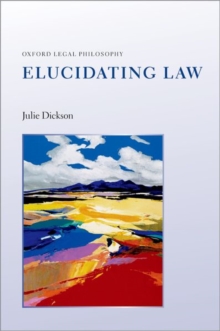
Reason and Restitution : A Theory of Unjust Enrichment PDF
by Charlie Webb
Part of the Oxford Legal Philosophy series
Description
In law, gains, like losses, don't always lie where they fall. The circumstances in which the law requires defendants to give up their gains are well documented in the work of unjust enrichment lawyers. The same cannot be said, however, of the reasons for ordering restitution of such gains. It is often suggested that unjust enrichment's existence can be demonstrated without inquiry into these reasons, into the principles of justice it represents and invokes. Yet while we can indeed show that there exists a body of claims dealing with the recovery of mistaken payments and the like without going on to inquire into their rationale, this isn't true of unjust enrichment's existence as a distinct ground of such claims. If unjust enrichment exists as a body of like cases and claims,truly independent of contract and tort, it does so by virtue of the distinct reasons it identifies and to which these claims respond. Reason and Restitution examines the reasons which support and shape claims in unjust enrichment and how these reasons bear on the law's resolution of these claims. The identity of these reasons matters. For one thing, unjust enrichment's status as a distinct ground of liability depends on the distinctiveness of these reasons. But, more importantly, it matters to those charged with the practical tasks of deciding cases and making laws, for it is these reasons alone which can directhow judges and legislators ought to respond to these claims.
Information
-
Download - Immediately Available
- Format:PDF
- Pages:380 pages
- Publisher:OUP Oxford
- Publication Date:12/02/2016
- Category:
- ISBN:9780191509315
Other Formats
- EPUB from £87.09
Information
-
Download - Immediately Available
- Format:PDF
- Pages:380 pages
- Publisher:OUP Oxford
- Publication Date:12/02/2016
- Category:
- ISBN:9780191509315










